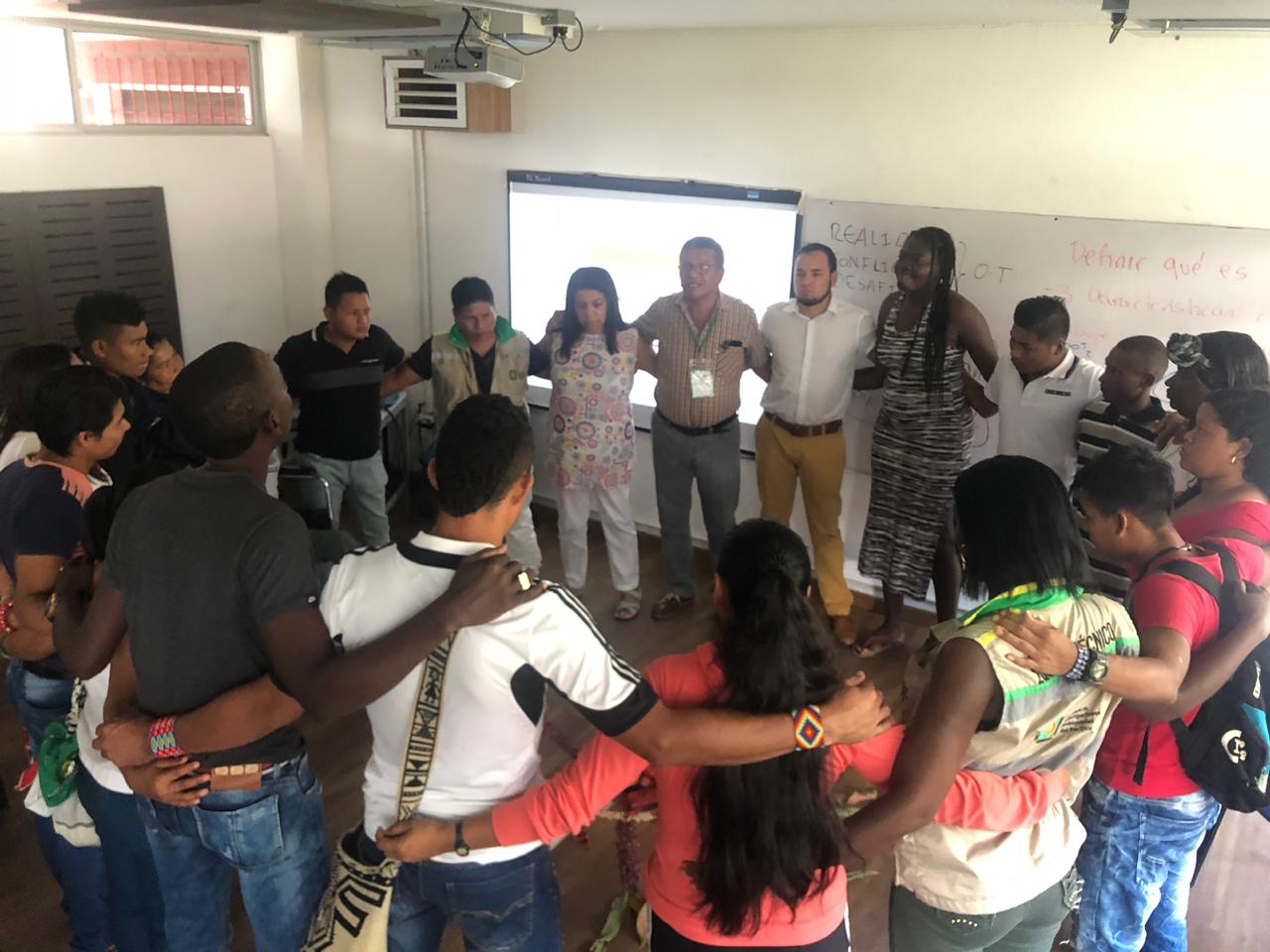Synergy and complementarity between approaches for effective territorial management of biodiversity
Dialogue Permanent Interinstitutional Offering in Buenaventura 2018
Gisela Paredes
General Land Use Planning Policy Workshop in Santa Marta 2018
Gisela Paredes
Dialogue Permanent Interinstitutional Offer DOPI Carmen del Darien
Gisela Paredes
Workshop on associative scheme for tri-border territorial planning Leguizamo Putumayo 2017
Gisela Paredes
Diploma course on natural and cultural diversity in land use planning in the orinoquia, 2021
Gisela Paredes
Territorial management approaches
Gisela Paredes
land use planning at the Congress of protected areas Lima 2019
Gisela Paredes
In order to address the challenges faced by society in social, economic, environmental and cultural terms, commitments have been adopted at the global level and subscribed to by States in different agendas, each with particular intervention approaches (rights, ecosystemic, urban-regional, disaster prevention and risk management and/or climate change). which of these approaches is appropriate for effective territorial management of biodiversity and social inclusion? All. The reality of the territories is diverse, complex and has very specific problems and potentials, which require cooperative, concurrent, complementary and multi-scale work of social and institutional actors to harmonize and implement the actions proposed in the planning instruments, in such a way that they respond to the identified needs, in order to prevent and manage socio-environmental conflicts, advance in the conservation of nature and human wellbeing.Combining rights, ecosystemic, urban-rural, risk management and climate change approaches is necessary to manage territories in an integral and pertinent manner.
Ratification, compliance with commitments Sendai Framework, Convention on Biological Diversity, Climate Change Convention, New Urban Agenda, ILO Convention 169. Sound Institutionality and Systems of: Disaster Prevention and Attention and Risk Management, National Environmental, Protected Areas, Climate Change, Cities. Knowledgeable and experienced personnel. Existence of Special Inter-Institutional Committee of Colombia's Land Management Commission since 2012. There are agreements between National Parks, environmental authorities, ethnic communities and sectors.
Colombia is a multi-territory, where different concepts of territory coexist: national state (unitary republic, decentralized in territorial entities, where it exercises sovereignty); indigenous ethnic (there are 115 ethnic groups, each one amalgamates ancestry, origin, cosmovision, relationship with mother earth); ethnic black, Afro-Colombian, Palenquero and Raizal communities where ancestors, nature, the river, the sea determine solidarity behavior; border territory where ecosystems and culture transcend the political administrative boundaries of nations. Territorial governance requires dialogue between governance (protected areas, water, natural resources and food), towards legitimacy, synergy between processes, governance, public policy relevance, participation, dialogue of knowledge and good living. Environmental, ethnic, peasant, urban and rural planning should dialogue to achieve viable territories. Co-leadership, alliances, cooperative work between environmental authorities, researchers, academia, territorial entities, community leaders, institutional sectors.
